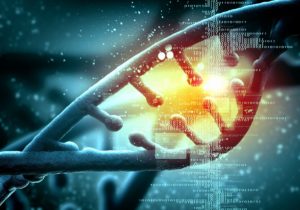In the second essay of The Abolition of Man, “The Way,” Lewis showed that humanity seemed to have only one stable code of ethics, one set of standards for determining what’s good. Though it goes by many names, western tradition calls it Natural Law, but Lewis tagged it the Tao, as a way of emphasizing that all cultures share it, whether east or west. At the end of the previous essay, “The Way,” he poses a challenge from the opposition: if permanent values can’t exist outside the Tao, why do we need values at all? It is possible to move beyond them? Might this be the next step in evolution?
Fair question, says Lewis: let’s consider what it might look like. And so he does: That Hideous Strength pictures just such a possibility.
In THS, the Inner Ring at Belbury have moved well beyond notions of good and evil; their only concern is utility. Could it possibly be otherwise? Can there be any other concern when the very notion of value is removed? As Frost instructs Mark in Chapter 12.4, “Your view of the war and your reference to the preservation of the species suggest a profound misconception. They are mere generalisations from affectional feelings.” In other words, nothing is good (such as the preservation of the species) or bad (e.g., war) in itself; all that matters is control and power.
Lewis (and George Orwell) imagined control exercised by power: a totalitarian state. The “smashing a

human face, over and over” (Orwell’s definition of totalitarianism) is a bit more subtle in Lewis, but not much. Today, in spite of all our hand-wringing over fascism and demagogues, Americans are more likely to be controlled by promises of comfort and safety–“personal peace and security,” as Francis Schaeffer defined it. Not just in our environment, but in our own bodies. The human genome has unfolded its secrets to science to such an extent that elite specialists can permanently remove certain harmful traits from the blueprint (it’s been done). This would seem like an unambiguous good, except that a) we don’t know the effects of tinkering with our DNA over time, and b) the ability to do so will almost certainly result in designer babies who will be born with a physical, aesthetic, and intellectual edge over those not so favored.
In the third essay of The Abolition of Man, Lewis boils it down: “When all that says ‘It is good’ has been debunked, what says ‘I want’ remains. [I want] cannot be exploited or seen through because it never had any pretensions. The Conditioners [i.e., those in control of the rest], therefore, must come to be motivated by their own pleasure.” If you can even call it “pleasure.” What kind of people are we talking about?
“I am not supposing [the future conditioners of the human race] to be bad men. They are, rather, not men (in the old sense) at all. They are, if you like, men who have sacrificed their own share in traditional humanity in order to devote themselves to deciding what humanity shall henceforth mean.” We see this in That Hideous Strength: Wither’s disappearing act, Frost’s mechanical aspect, are images of men who have sacrificed their own humanity. They are reduced to shells. And, if they have their way, what of their victims? “They are not men at all; they are artifacts. Man’s final conquest has proved to be the abolition of man” [AOM p. 77).

Sitting in our air-conditioned houses, with medicine cabinets stuffed with pain relievers and relatively new automobiles waiting to take us wherever we want to go on well-paved roads, we may not feel like artifacts. We may feel more like masters of our fate. Science and technology have boosted us to a level of comfort and control undreamed-of even fifty years ago. Surely Lewis, who once described himself as a “dinosaur,” is allowing a bit of the Luddite to creep up on him here. Time, space, and disease have not been overcome, but certainly been tamed, and science has given us that power. Why the gloom and doom?
“. . . [W]hat we call man’s power over Nature turns out to be a power exercised by some men over other men with Nature as its instrument.” These words appear early in the third essay, but Lewis also put them, almost word for word, in the mouth of Professor Filostrato in That Hideous Strength, Chapter 8.3. Where power is limited, so too the damage is limited. But as power grows, so does its potential for harm.
In chapter 12 of That Hideous Strength, Mark is told that The Head of the organization is not really Alcasan, even though it’s Alcasan’s physical head they’ve been using. There’s a spirit or spirits (Frost calls them “macrobes,” though they actually demons) that speaks through it. Why do demons even need a “head” to speak through? Because their power is limited also; they seek to be united with another power born not from the sky but from the earth: what used to be called “magic.”
“The serious magical endeavor and the serious scientific endeavor are twins: one was sickly and died, the other was strong and throve. But they are twins. They were born of the same impulse [i.e., to shape nature to our wishes]” (AOM, p. 87). The efforts of the Inner Ring to recruit Merlyn will reunite science with magic and complete their power. “It is the magician’s bargain: give up our souls; get power in return. But once our souls, that is, our selves have been given up, the power thus conferred will not belong to us. We shall in fact be the slaves and puppets of that to which we have given our souls” (AOM, p. 83). Lewis means it spiritually, perhaps, but the Inner Ring will soon realize it physically. And it won’t be pretty.
For our read-along to That Hideous Strength, start with the Introduction and follow the links.
